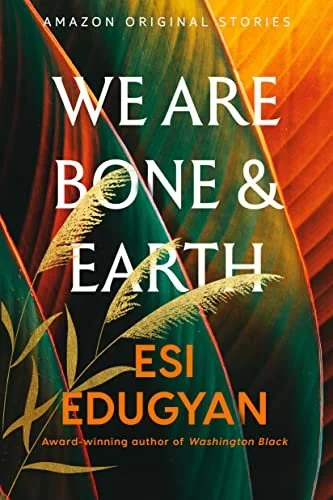Spotlight: We Are Bone and Earth by Esi Edugyan
/At a fort in Cabo Vermelho in 1779, Sisi, a West African girl with a gift for languages, works as a translator for her English enslavers. She was separated from her younger brother after they were kidnapped from their village by the ahosi, fierce female warriors who serve a neighboring king—and her guilt over her failure to protect him has never left her. When unexpected news reaches the fort, Sisi must find her voice, for her brother’s sake and for her own.
Esi Edugyan’s We Are Bone and Earth is part of A Point in Time, a transporting collection of stories about the pivotal moments, past and present, that change lives. Read or listen to each immersive story in a single sitting.
Excerpt
CABO VERMELHO, 1779
In the early hours, the rooms still cold from the night wind off the water, a new caravan arrives at the fort. And though I hold no hope, though I tell myself it is a foolish labor, I know I will again search among the taken for my brother. Five years have passed since I last looked into Yao’s eyes, five years since I have been made to accept his loss. And yet I cannot reconcile with it. I cannot believe I am never again to see him on these shores, the two of us cutting a path through the black trees back to the interior, going home.
Pawns. That is what the young ones brought here are called—free children given to the cheegwa as collateral. Their fathers leave them here, at the fort, in exchange for debts they cannot pay or for loans to buy slaves in the interior, and terrified, lonely, defenseless, they are given their six weeks of food, shelter, water in this foul stone house. They cross the narrow yard with their vessels and drink from the briny well. They sleep on their straw pallets; in the bleached mornings they huddle in the corners praying to the gods, clutching their meager belongings. Their dolls. Their carved wooden keepsakes. Listening all the while to the groans of the captives in the pens beyond. And the cheegwa with their raw pink skin, they do not molest them, they lay no hand upon them. These children walk among them untouchable and blessed.
Until the last day of that sixth week, when their fathers are given until midnight to claim them. And if the men do not arrive, or if they fail to pay or bring their promised quota of slaves? Then the small ones are dragged crying into the pens, or taken below into the darkness and shackled and beaten with cane rods until their legs burn with blood, and then they too are shipped across the waters, to the terrible unknown islands.
Six weeks they are bone and earth, medofu. And then they are neither.
And how do I account for myself? I who have been here five years now, housebound, spared such a fate because I speak many tongues. Days before my arrival the Welshman translator passed in a howl of dysentery and fever, and days later my gift for languages was discovered, and I was forced to replace him. I am looked at with envy by the pawns who come and who go.
They imagine I am lucky.
But I remember still how it was once, your tiny rough hand in mine, the trees as dark as iron in the resting place. I remember the smell of our mother’s skin, like earth turned in the dry season. The flash of iron in sunlight. And our father walking among the yellow lizards by the river, the shadows of leaves breaking across his face. All that, all of what was once our world.
I shall speak of all that has since happened, medofu, so that you will know, it will be as if no years have parted us.
I shall tell you what we were.
About the Author
Esi Edugyan is the author of the novels The Second Life of Samuel Tyne, Half-Blood Blues, and Washington Black and the nonfiction work Out of the Sun. She is the recipient of the Scotiabank Giller Prize (2011 and 2018), the Anisfield-Wolf Book Award (2012), and the Hurston/Wright Legacy Award (2013).















































